A crane stands on a level ground. It is represented by a tower ABCD, of height 11 m and a jib BR. The ib is of length 20 m and can rotate in a vertical plane about B.A vertical cable, RS, carries a load S. the diagram shows current position of the jib, cable and load.

The length BS is
8m
12m
13.9m
17.9 m
Step by step video solution for A crane stands on a level ground. It is represented by a tower ABCD, of height 11 m and a jib BR. The ib is of length 20 m and can rotate in a vertical plane about B.A vertical cable, RS, carries a load S. the diagram shows current position of the jib, cable and load. The length BS is by Maths experts to help you in doubts & scoring excellent marks in Class 10 exams.
Updated on:21/07/2023Topper's Solved these Questions
Similar Questions
A crane stands on a level ground. It is represented by a tower ABCD, of height 11 m and a jib BR. The Jib is of length 20 m and can rotate in a vertical plane about B.A vertical cable, RS, carries a load S. the diagram shows current position of the jib, cable and load.

The measure of the angles BRS, is
View SolutionA crane stands on a level ground. It is represented by a tower ABCD of height 11 m and BR. The ib is of length 20 m and can rotate in a vertical plane about B.A vertical cable, RS, carries a load S. the diagram shows current position of the jib, cable and load.

The angle that the jib, BR, makes with the horizontal, is
View Solution
Knowledge Check
A weightless rod of length 2l carries two equal masses 'm', one tied at lower end A and the other at the middle of the rod at B. The rod can rotate in vertical plane about a fixed horizontal axis passing thriugh C . The rod of is released from rest in horizontal possion. The speed of the mass B at the instant rod become vertical is:
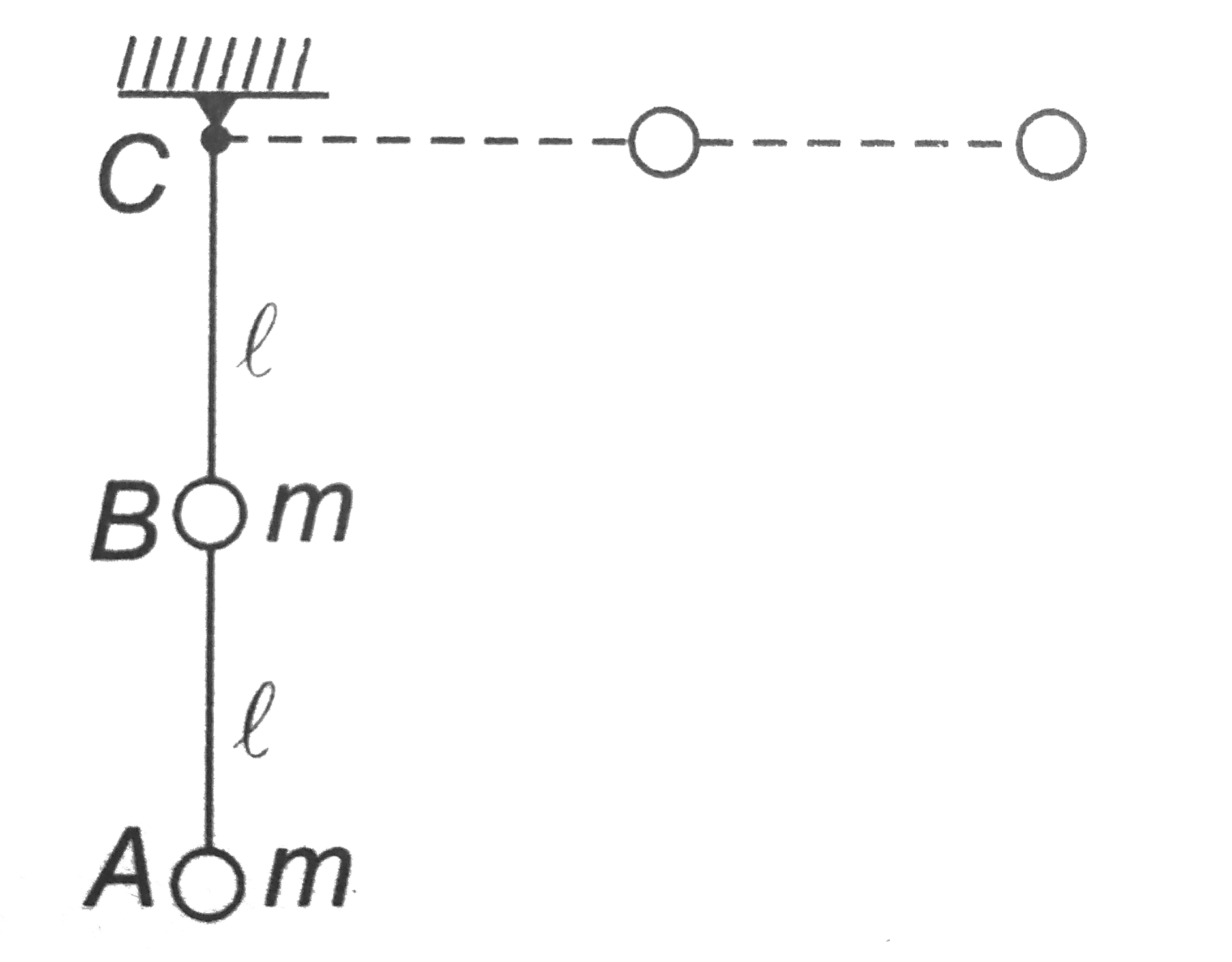 A√3gl5B√4gl5C√6gl5D√7gl5
A√3gl5B√4gl5C√6gl5D√7gl5There is an insulator rod of length L and of negligible mass with two small balls of mass m and electric charge Q attached to its ends. The rod can rotate in the horizontal plane around a vertical axis crossing it at a L/4 distance from one of its ends.
In what position is the rod to be set so that if displaced a little from that position it begins a hormonic oscillation about the axisA?A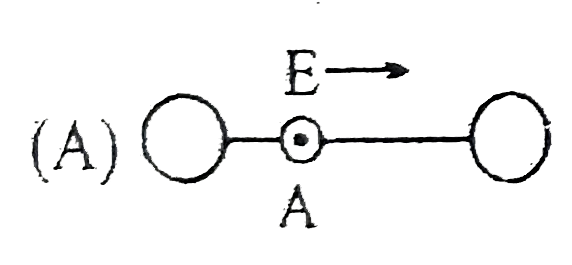 B
B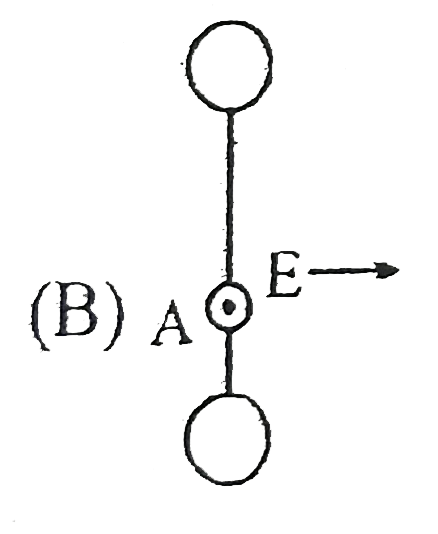 C
C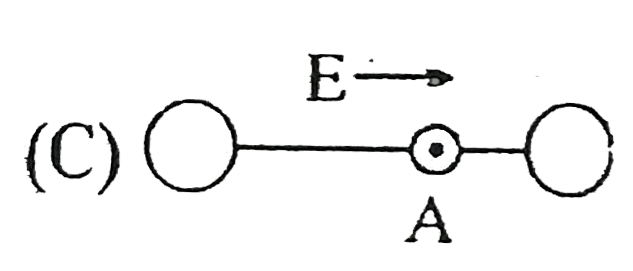 D
D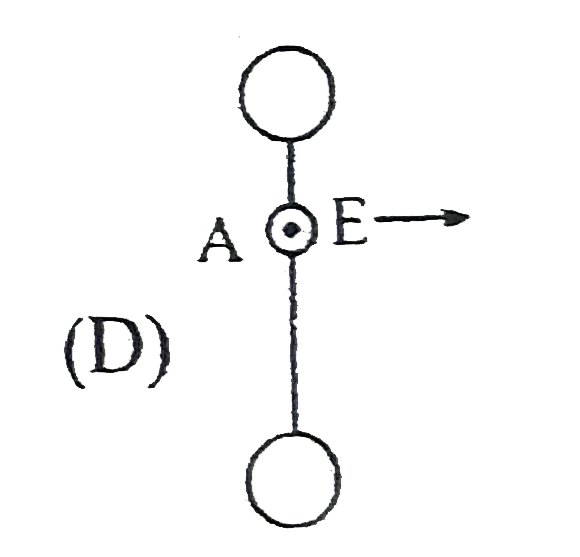
One end of a uniform rod of mass M and length L is supproted by a frictionless hinge which can with stand a tension of 1.75Mg. The rod is free to rotate in a vertical plane. The maximum angle should the rod be rotated from the vertical position so that when left, the hinge does not brek is πn
View SolutionIn the figure shown one end of a light spring of natural length l0=√58m(≈0.8m) is fixed at point D and other end is attached to the centre B of a uniform rod AF of length l0/√3 and mass 10kg. The rod is free to rotate in a vertical plane about a fixed horizontal axis passing through the end A of the rod. The rod is held at rest in horizontal position and the spring is in relaxed state. It is found that, when the rod is released to move it makes an angle of 60∘ with the horizontal when it comes to rest for the first time. Find the
(a) the maximum elogation in the spring . (Approximately)
(b) the spring constant. (Approximately)
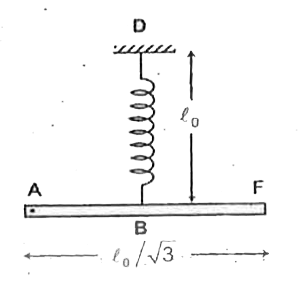
View SolutionAn electrometer consister of a fixed vertical metal bar OB at the top of which is attached a thin rod OA which gets deflected from the bar under the action of an electric charge (fig.). The rod can rotate in vertical plane about fixed horizontal axis passing through O. The reading is taken on a quadrant graduated in degrees. The length of the rod is l and its mass is m. what will be the charge when the rod of such an electrometer is deflected through an angle α in equilibrium. Find the answer using the following two assumptions :
The charge on the electrometer is equally distributed between the bar & the rod and the charges are concentrated at point A on the rod & at point B on the bar.
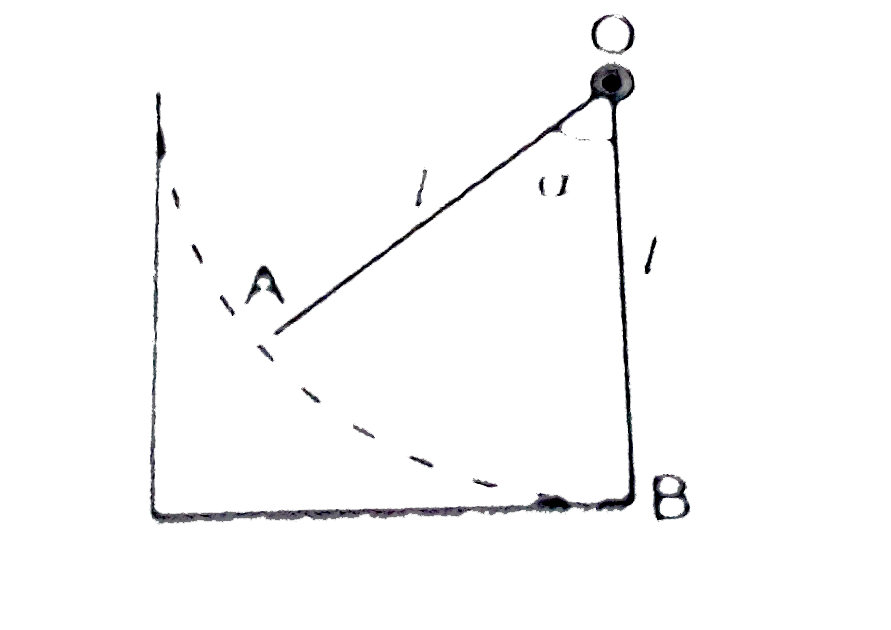
View SolutionA weightless rod of length 2l carries two equal masses 'm' , one secured at lower end A and the other at the middle of the rod at B. The rod can rotate in vertical plane about a fixed horizontal axis passing through C. What horizontal velocity must be imparted to the mass at A so that it just completes the vertical circle.
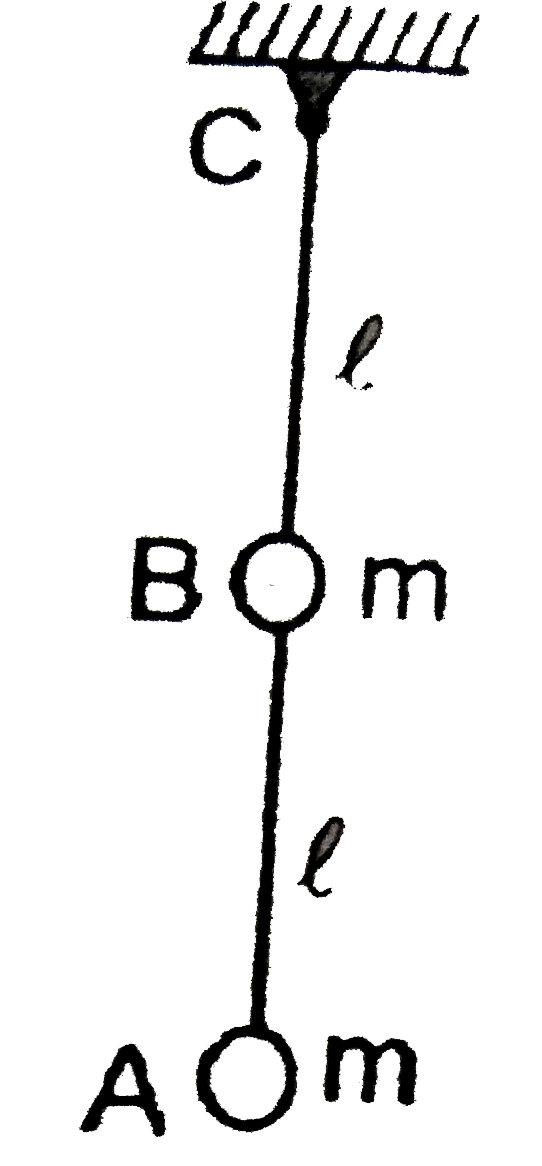
View Solution(a) A boy on a skateboard is sliding down on a smooth incline having inclination angle q. He throws a ball such that he catches it back after time T. With what velocity was the ball thrown by the boy relative to himself ?
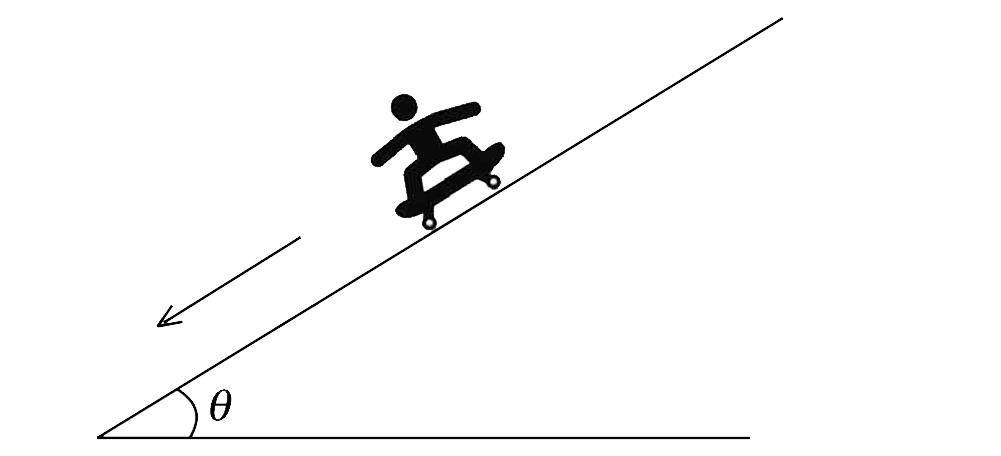
(b) Barrel of an anti aircraft gun is rotating in vertical plane (it is rotating up from the horizontal position towards vertical orientation in the plane of the fig). The length of the barrel is L=√2m and barrel is rotating with angular velocity ω=2rad/s. At the instant angle θ is 45° a shell is fired with a velocity 2√2m/s with respect to the exit point of the barrel. The tank recoils with speed 4m/s. What is the launch speed of the shell as seen from the ground?
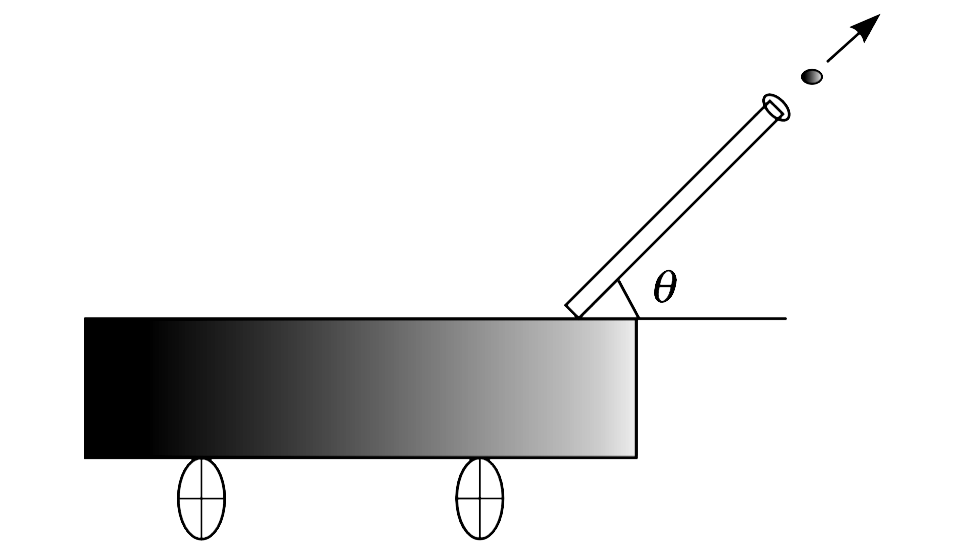
View SolutionA particle of mass m is attached to an end of a light rigid rod of length a. The other end of the rod is fixed, so that the rod can rotate freely in vertical plane about its fixed end. The mass m is given a horizontal velocity u at the lowest point. (a) Prove that when the radius to the mass makes an angle θ with the upward vertical the horizontal component of the acceleration of the mass (measured in direction of u) is [g(2+3cosθ)−u2/a]sinθ (b) If 4ag ltu2 lt5ag, show that there are four points at which horizontal component of acceleration is zero. locate the points.
View Solution
